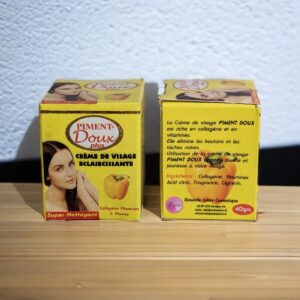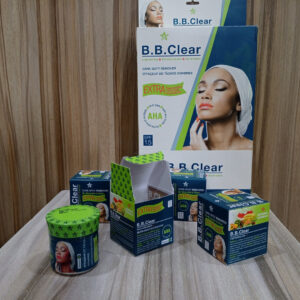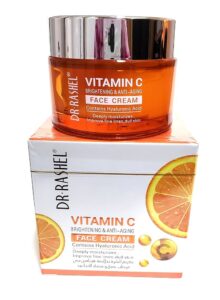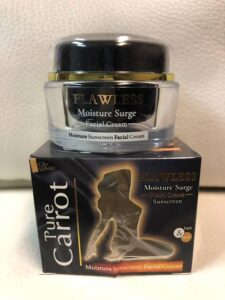
With this my well researched 9 best ways to remove black spots on face naturally, you can permanently get rid of those black spots with a variety of natural therapies available here, such the skin-brightening properties of lemon juice and the relaxing properties of aloe vera.
Please note, however, that each person may experience various degrees of success from these procedures due to differences in skin types and conditions. Despite the fact that dermatologists have assessed and authorized these treatments, individual results may vary or take longer to manifest. Before finishing an application, always perform a patch test to avoid unfavorable reactions. If the symptoms persist or if you have any concerns, consult a board-certified dermatologist.
See This Best Black Spots Removal Creams
Let’s Understand The Black Spots On The Face
The face, hands, and other body parts that receive the most sun exposure are frequently the sites where tiny, darker patches of skin with varying sizes appear. Another name for these patches is hyperpigmentation. The pigment responsible for skin color, melanin, is produced in greater amounts during adolescence and develops as a result of aging, sun exposure, hormonal changes, inflammation, and skin injuries.
Types Of Black spots
One may experience several kinds of black spots. Among the most common ones are:
- Sun spots: Exposure to the sun, particularly its UV rays, can result in black pigmentation and patches or spots on the skin, usually on the hands and face. These brown, flat, spherical lesions are also referred to as solar lentigines.
- Freckles: Tiny, flat patches that can be light brown, black, or red are called freckles. Most freckles are inherited, though sun exposure can make them worse.
- Melasma: These are big, black spots that resemble symmetrical butterflies that develop on the cheeks and face. Women typically develop melasma, which is frequently the result of hormonal imbalances brought on by pregnancy, menopause, etc.
- Post Inflammatory Hyperpigmentation (PIH): PIH is an increase in skin pigmentation brought on by an injury or inflammation of the skin. Post-acne markings are the most prevalent type of PIH on the face. Big zits or blemishes commonly heal with PIH, which can be pink, red, brown, or black in color.
Anywhere on the skin can have hyperpigmented or black spots. The color can range from light brown to black and can be caused by sun exposure, aging, hormone imbalances, or skin traumas. These patches could be flat or somewhat raised, and they could vary in size and shape. Patients frequently seek therapies to decrease or eradicate them despite the fact that they are benign because they may cause discomfort.
How to Treat Black Spots at Home
Even while Black spots are frequently harmless, they can negatively impact one’s confidence and self-image, which is why treatment is crucial. Thankfully, a number of natural remedies may lessen their prominence. Natural skin-lightening components like lactic acid (found in yogurt), citric acid (found in lemons), and antioxidants (found in aloe vera) are included in many of these therapies.
While these natural remedies won’t fully remove black spots, regular application may significantly reduce their appearance. Once more, a person’s success may depend on the type and depth of their hyperpigmentation as well as their skin type.
9 Best Ways To Remove Black spots Naturally
Many people look for simpler home-based methods to remove black spots on their skin before moving to conventional remedies. The following treatments are not only simple to get in one’s own kitchen or nearby stores, but dermatologists have also attested to their effectiveness in lessening hyperpigmentation. If one is committed to a regular regimen, these natural remedies can be used as a first step toward attaining a more balanced complexion.
1. Yogurt Mask
Yogurt and buttermilk contain lactic acid, which has moderate exfoliating properties that help reduce hyperpigmentation and exfoliate dead skin cells. Apply buttermilk or plain yogurt directly on the spots, let sit for 20 minutes, then rinse.
2. Turmeric Paste
Turmeric contains a chemical called curcumin, which inhibits the development of melanin and may help lighten black spots. Mix the powdered turmeric with the water to make a paste, and then dab the affected areas with it. After a while, let it sit before washing it off.
3. Green Tea Extract
Because of its strong antioxidant content, studies have indicated that applying green tea topically to the skin may have a depigmenting effect. Once a green tea bag has steeped for a few minutes in boiling water and cooled, use the bag’s warmth to the dark areas.
4. Vitamin C Serum
Because vitamin C is known to lower melanin synthesis, it lessens hyperpigmentation. Thus, lightening black spots can be achieved by utilizing citrus juice, such as orange or lemon juice, or by applying a serum containing vitamin C.
5. Lemon Juice and Honey Mask
It is well known that the citric acid in lemon juice, which has natural bleaching properties, can lighten black spots. Honey’s antibacterial and therapeutic qualities might also aid in skin soothing. Mix the lemon juice and honey; apply the mixture to the black spots, allow it to sit for fifteen minutes, and then rinse with warm water. Note: Lemon juice may increase photosensitivity; therefore, after putting it on your skin, always use sunscreen.
6. Aloe Vera Gel
Aloe vera gel, which is rich in relaxing and soothing substances, can lessen inflammation and irritation while also brightening areas. Fresh aloe vera gel should be applied directly to the black spots. Allow it to sit overnight before washing it off the next day.
7. Apple Cider Vinegar
The acetic acid in this vinegar helps to lighten skin tone. Before using apple cider vinegar topically, dilute it with equal parts water. Using a cotton ball, apply to the affected region. After a few minutes, rinse off. Don’t put on delicate skin.
8. Sunscreen
Sunscreen is not a remedy; rather, it is a required precaution. Exposure to sunlight may exacerbate hyperpigmentation. Using a broad-spectrum sunscreen with an SPF of 30 or higher every day helps prevent the darkening of spots.
9. Papaya Mask
Papain, an enzyme found in papayas, helps to brighten dark spots on the skin by exfoliating them. On the dark regions, mash the papaya and apply a mask; let it rest for 20 minutes before washing.
For all the above solutions, it is advisable to always undertake the smallest possible test, that is apply the mask on a small region behind your ear and observe for 24 hours. You can move forward with applying the mask to your face if there is no reaction. To stop sun damage and skin irritation, always reapply sunscreen and moisturizer.
Professional Tips On How To Reduce Black Spots On Your Skin
Here are some general pointers and precautions to take in addition to the previously mentioned home remedies to properly remove and lessen dark spots on the face:
- Sun Protection: To stop new black spots from forming and to stop existing ones from getting darker, use a broad-spectrum sunscreen every day, even inside or on cloudy days.
- Healthy Diet: A well-balanced diet high in vitamins and antioxidants can help avoid pigmentation problems and promote skin restoration. Nuts, leafy greens, and berries are among the foods that are very helpful.
- Gentle Cleaning: Wash your face twice a day to get rid of excess oil and pollutants that might cause black spots.
- Exfoliation: By regularly removing dead skin cells, exfoliation helps to promote more even skin tone and lessen the visibility of black spots. Don’t exfoliate too much.
- Hydration: Use the right moisturizer to keep your skin well-hydrated. Skin that is well-hydrated is less likely to get hyperpigmented.
- Avoid Touching: Try not to pick at pimples and patches as this may worsen pigmentation and possibly result in scars.
Always keep in mind that consistency is key while following a thorough skincare regimen, and even if these suggestions may be helpful, sunscreen is still the most important product for shielding the skin from future damage and black spots.
Most Effective Ways To Remove Black spots
Conclusion
While many people may find these natural ways to remove black spots on face remedies to be quite beneficial, not everyone will see the same degree of improvement. Individual differences in skin type, pigmentation, and specific health conditions affect how each person’s skin reacts to treatments.
Also essential are consistency and patience, as these therapies might not take effect right away. To avoid causing irreversible harm to your skin, always seek the advice of a dermatologist if you notice no improvement or if you experience any negative reaction.





